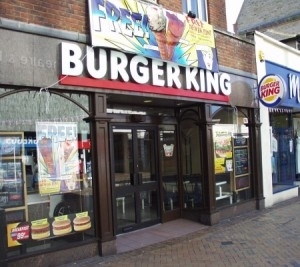
Burger King's recent acquisition of Canadian coffee and doughnut franchise Tim Horton's provided a fascinating case study on trends in franchisor behavior. However, recent backlash about the move, from customers and lawmakers alike, has put the company on the defensive. The King's latest struggles with brand reputation are as illustrative for managers as the company's latest merger, so franchisees can benefit by keeping a close eye on this developing story.
Americans boycott BK
Customers and politicians are outraged at Burger King's merger based on suspicions that the move is merely an opportunity for "tax inversion." Burger King stands to pay lower taxes if it moves its headquarters to Canada after merging with Tim Horton's. As a result, the burger franchise would no longer be subject to America's corporate tax. This trend has been previously established by other American corporations, but these companies were then called out as "corporate deserters" by President Obama, says the Los Angeles Times. Likewise, MarketWatch notes that multiple senators have also rallied against Burger King's move up North. The national distaste for tax inversion has lead to American consumers launching a #boycottburgerking Twitter campaign. The Huffington Post reports that angry Burger King fans have also flooded the company's Facebook page.
Experts split on lasting impact
The backlash directed at Burger King serves as another helpful lesson for franchisees about the power of branding. Much of the emotional reaction to Burger King's supposed defection is fueled by the chain's branding as a national icon. The franchise's rich history of successful marketing campaigns and nearly ubiquitous store locations have woven Burger King into the tapestry of the American social memory. The King is, in its own way, as American as apple pie and baseball. The U.S. population is painfully protective of its identity, and the brands that partially represent them. The emotional vitriol inspired by Burger King "breaking up" with American consumers is proof of effective branding.
Regardless, many experts are skeptical about the success of the #boycottburgerking campaign. As noted above, American consumers hold intense loyalty to their favorite brands. Burger King may see only negligent impacts to its profit margin as a result of the boycott, thanks to resounding national love for the Whopper. The Los Angeles Times points out that several equally passionate boycotts against Chik-fil-A and Hobby Lobby have fallen to the wayside as passions died down along with interest from the 24-hour news cycle. Franchises with sufficient brand equity are able to retain their appeal to customers in the midst of scandal, but these businesses are the exception to the rule.